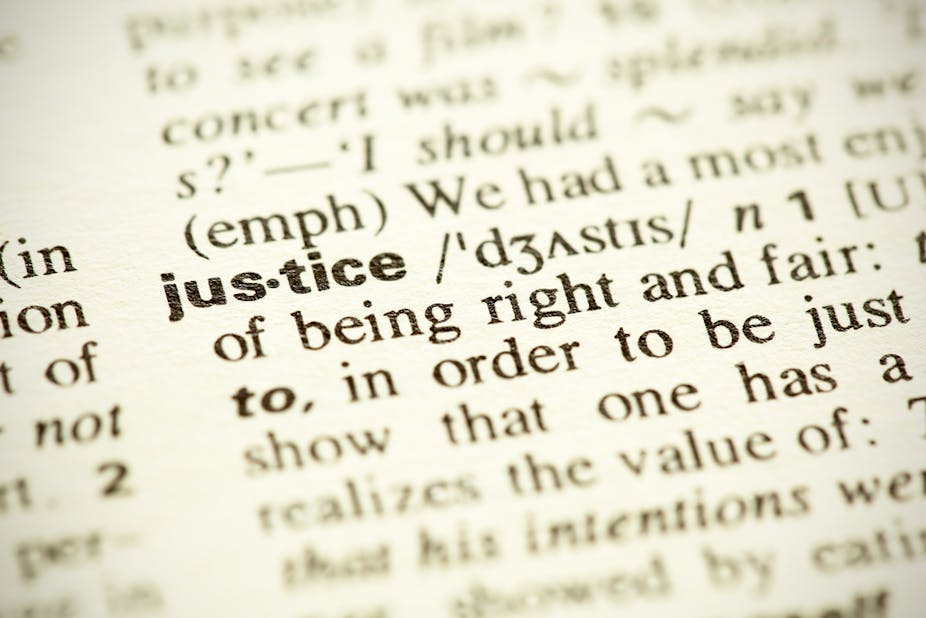When Family Court judge, Mr Justice Peter Jackson, made his judgment in a recent case about the future of four children who were in foster care he deliberately wrote it so that, as he put it: “the mother and the older children can follow it”. His decision to keep the judgment short and his language simple has been warmly welcomed by legal commentators, social justice advocates and the Plain English Campaign.
Why is this so remarkable? While every field has its own jargon, the law is allegedly a serial offender. The Plain English campaign identifies a long list of problems with legalese – including long sentences, double negatives and excess verbiage. The idea that legal documentation is kept deliberately obscure, either to confuse people as to their rights or to deter them from challenging legal authority, recurs throughout the years.
The argument in favour of specialist terminology, in at least some cases, is clear. Experts in a field may be better able to do their job if they can communicate efficiently with one another – and it is efficient to use short expressions for things that get talked about a lot, a point made by American linguist George Zipf in 1935.
The resulting language may be mystifying to outsiders, but that doesn’t necessarily matter, as long as it is clear to its users. We could think of this as a case of what Hilary Putnam called the “division of linguistic labour” – in other words, it’s the job of experts to understand the meanings of technical terms, and they needn’t concern the rest of us.
Laying down the law
But when specialists have to interact with non-specialists it’s a different story. The law represents a striking case in point: laws are being framed, cases argued and judgments rendered which affect people’s lives in the most profound way. Yet often the language being used is arcane and complex. Advocacy groups argue that this interferes with people’s access to justice and represents a serious human rights issue.
Article 7 of the Universal Declaration of Human Rights states that “All are equal before the law and are entitled without any discrimination to equal protection of the law” – but the use of obscure language has the potential to sort us into an advantaged category (those who understand the terminology) and a disadvantaged one (those who do not). Young children may be at a particular disadvantage – although in this case, the judge clearly states that he is aiming to make the judgment readable by the whole family.
Some of the complexity of legal language may be unfixable. Sir Ernest Gowers thought so – in The Complete Plain Words, he advocated clarity, but made an exception for legal language, which he described as “in the province of mathematics rather than of literature”. Even Mr Justice Jackson’s “plain English” judgment has to venture into what it calls “legal language” at one point to state its conclusions in terms that are unambiguous in the law, as it is currently framed.
Deep and meaningful
Nevertheless, some areas of legal communication are ripe for improvement. One widely discussed example concerns “legal doublets” – phrases such as “null and void”, “let or hindrance”, and “cease and desist”, where both terms mean essentially the same thing. Ironically, in some cases, these may have originally arisen through someone’s attempt to clarify the meaning of an obscure, technical word by adding a familiar translation.
For instance, “let” was once a commonplace word for “obstruction” – as in “without let or hindrance”. Unfortunately, in this case, the relevant meaning has died out (except in a few contexts, such as tennis), and the resulting expression is now more mysterious than ever. Most authorities on the subject think that legal doublets (and the occasional triplet, such as “rest, residue and remainder”) are best dispensed with nowadays.
The judgment in this case represents a fine example of what is possible, in terms of simplifying legal language, even for a reasonably complex and sensitive issue. A greater challenge might be to achieve a similar level of clarity in a judgment in, for instance, tax law. Simplification is not an easy process. Judgments that are easier to follow are likely to be longer – and exposition that is too elaborate can be tiresome, if not difficult, to read. And perhaps the relevant parties to a tax case wouldn’t require legal language to be simplified for them.
Perhaps a more general message that this judgment sends is that effective communication addresses the needs of the audience. These needs do not normally include the need to be convinced that the writer is a master of the stylistic conventions of their profession. Of course, that may be unfortunate if you’re the writer and you’ve spent a lot of time just mastering those conventions.

